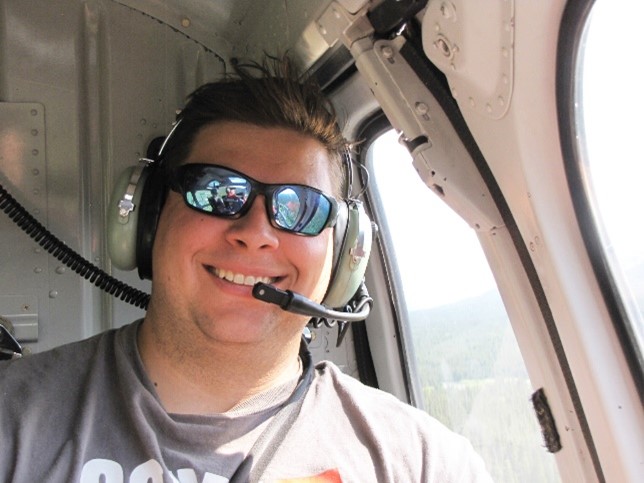Natural Resource Engineers
On this page
- Overview
- Entry level qualifications
- Day in the life of a natural resource engineer
- Career development opportunities
- Tips from current employees
- Testimonials
Overview
Natural resource engineers work both independently and as part of a team to ensure that publicly accessible forest road infrastructure is effective, environmentally sound, and safe for all users. They may be involved in multi-disciplinary construction services, infrastructure construction guidance, project management including contract development and management, and oversight of road and bridge inspections and maintenance. In addition, they will have access to the most up-to-date technology to complete their work such as drones, survey equipment, and remote monitoring.
The special opportunity employees have as a natural resource engineer is the ability to see projects through from inception to final completion. Typical projects start with initial site visits in a variety of unique and remarkable locales all over the province. From that point, they will engage with First Nations and a wide variety of stakeholders such as environmental agencies, consultants across all industries and other government ministries and organizations. Once approval for a project has been received, they will have the opportunity to develop unique strategies to solve complex infrastructure problems. Once a solution has been determined, they will develop and award a contract to implement the solution, monitor said contract, and see the project through to completion.
Some other work highlights for natural resource engineers include:
- Flexibility to work on projects and tasks that are of interest to them. This includes a balance between field and office work, in whichever way they prefer
- Opportunities in mentorship both in being mentored by experienced team members and acting as a mentor to less experienced hires
- True support and encouragement to pursue continuous education including courses, seminars, and conferences
- Opportunity to work on province wide disaster responses through Temporary Emergency Assignment Management System (TEAMS) or other relief efforts
- An amazing ability to balance work and life requirements through flexible work schedules, the Overtime, Shift Work, and Standby (OSS) program and other support systems
Entry level qualifications
To apply for entry level natural resource engineer position, applicants will typically need post-secondary education in a related engineering field. For professionals, registration in Engineering and Geologists BC (EGBC) is mandatory, but there are opportunities for engineers-in-training to follow a growth path as they develop into professional engineers.
Having experience in forestry operations, construction supervision, bridge and/or road design, and project management are recognized as important but not all are mandatory. Other key areas of expertise include both written and verbal communication, experience with contracts and contract language as well as experience in stakeholder engagement.
Other attributes that may be valuable to be a successful natural resource engineer include enjoying the outdoors, the ability to multi-task over a variety of projects, the confidence to make decisions and lead project teams, and an excitement to travel on resource roads and experience the BC back-country.
Career development opportunities
Employees will have an opportunity to develop their career in the Natural Resource Ministries through on-the-job training and support for outside continuing education. Professional Engineers with limited experience start as a Licensed Science Officer (LSO) 3, with a variety of LSO 4 and LSO 5 positions which are available with more years of engineering experience. There is also an opportunity for Engineers in Training to gain the required experience and knowledge within the Natural Resource Ministries to gain their Professional Engineering designation.
There are also opportunities for Engineering Technicians to move through the organization from entry level Engineering Technologist roles up to Director of Engineering roles.
Tips from current employees
Some tips from existing employees:
- Try to diversify your experience as much as you can. Get experience in as many areas as possible to assist in future management of complex projects
- Focus on and implement your organization tools and skills early on. There are often many different projects and activities going on at one time that require on-going attention and action
- Understand your role of professional practice, stay up to date with Engineering and Geoscientists BC (EGBC) requirements and know the EGBC guidelines
- Make continuous learning/education on emerging topics a priority to help understand how it affects our various projects
Testimonials
“My favorite part [of my role] is the variety of the work. I get to work in the field on construction and forestry projects, work in the office on contract management and engineering design and then take a helicopter flight to some of the most pristine areas of the province. We are given the opportunity, and encouraged, to pursue the work and fields we are most interested in. This also comes with a great amount of work flexibility and a great work life balance.” – Colton Polsom, Senior Area Engineer (Prince George)

